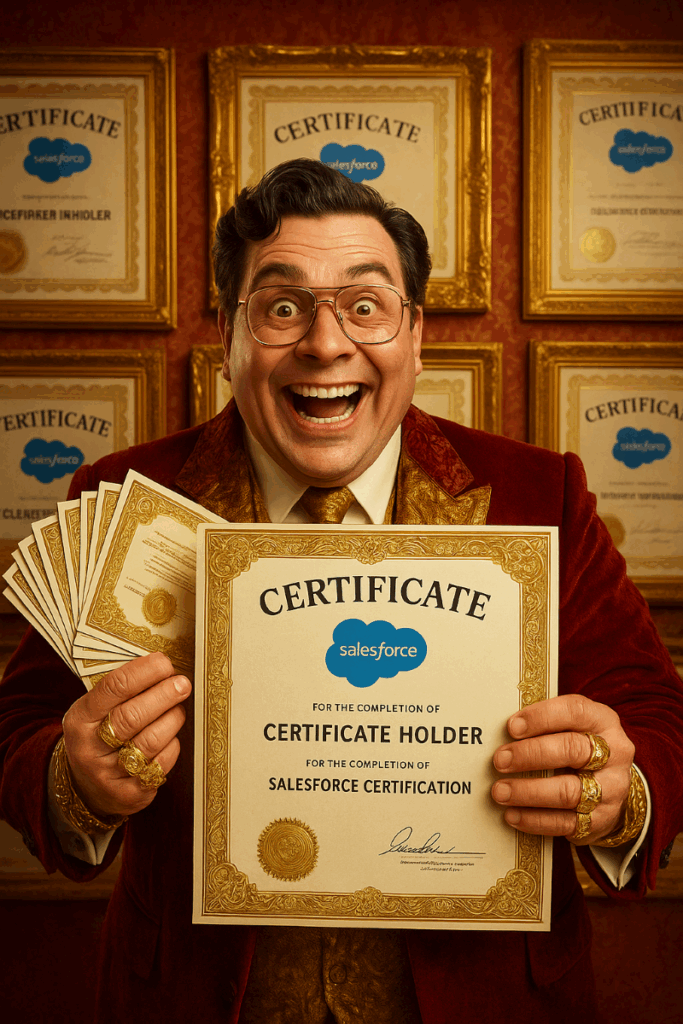Certification vs Experience
Whether you have 1 certificate or 10, it doesn’t matter too much in the Salesforce job search game.
It’s a bit like investing – you need a balanced portfolio, don’t put all your effort into just one area.
A good candidate also needs a good balance:
- 1 part certification
- 1 experience
- 1 part great resume
- 1 part sharp interview skills
- 1 part soft skills
Those in the hiring game (recruiters and HR teams) are pretty sharp at spotting the pretenders. Those with lots of certifications and little experience to back them up are a red flag (warning). Maybe this person is good at theory and passing exams, but they are unproven in practice? Perhaps they cheated their way through the exams with exam dumps? It could also be that this person just enjoys the challenge of certifications and is a very fast learner. Regardless of the reasoning, recruiters are erring on the side of caution and looking for a more balanced portfolio.

If you are job searching and already have 1-2 certifications, then it’s time to get some experience.
Experience
Yes the old “how do I get a job if I don’t have experience” situation rears its ugly head!
No one said experience had to be paid or had to be for a non-profit as an intern, either (but both are possibilities). You can simply create your own experiences. Create a new Salesforce developer org and build an application. Anything that forces you to think about business requirements, ask questions (even of yourself), and solve real problems is suitable.
Let’s say you are a keen golfer, then create an app to record all your scores across all the courses you play at. Create your leaderboard and see where you play best. Anglers, create your own app to record your fishing efforts. Create an app for your favorite sport or hobby.
Resume
The next essential ingredient is to have a resume that clearly shows when and how you have applied your skills and experience to solve real problems. Make sure your resume quantifies your contribution and is not just a regurgitated duty statement. Use the STAR Method that I detail in this article to make sure your resume shows the results of your efforts.
Interview Skills
Your performance in an interview is critical for career success. If you are nervous or a poor interview performer, then find someone to help you practice. Write your own interview questions, search Google or ask ChatGPT to generate some questions for your desired job role and then practice. If you can record the interview practic,e then even better. Play it back and identify areas to improve. practice, paractice, practice.
Soft Skills
There are a host of other non-technical skills that are equally as important as your technical skills. Things like teamwork, writing skills, presenting skills, negotiating, conflict resolution, planning, problem solving, and time management are all important skills. You can develop these skills in any job role – even a holiday job working at McDonald’s can help.
Summary
Being job-ready means having a good balance of all of these criteria.
Too much of one upsets the balance. Ensure you give each criterion equal attention.


